January 16, 2019 - Muo is one of the oldest shore settlements in Boka Bay, which we can recognize by the fact that the Dalmatian-Romanic dialect is best preserved here. It is particularly evident in maritime and fishery terminology, and we can see that fishing has always been the leading economy of the area.
Today Muo is one of the architectural pearls in the chain of the Bay of Kotor, which, unfortunately, has not been immune to building pressures affecting the entire Boka Bay. But the ever-expanding houses by the sea, built in the Middle Ages, left less room for devastation than other places along our coast. Muo is today a popular destination for tourists who want to escape the city bustle and enjoy the silence and beauty of the Bay of Kotor. However, there are also some days when the locals take care of their guests getting closer to the spirit of the place, once an everlasting signing stage of its inhabitants.
For the following story, we should thank our host, one of Muo's most respected residents when it comes to preserving the culture and tradition of the place, Ilko Marovic. Asked what is most important in Muo's cultural history, Ilko answers:
"First I would say singing, the legend says that the children in Muo do not give birth by crying, but by singing. Our culture comes from a fishing tradition; we are proud of the Blessed Gracija, who originates from Muo, and the faith that dictated the way of life of the locals. Today is all different. Some have kept on the earlier culture of life, nurturing communion and community life by participating in various events relevant to the place, but in general, I cannot say we are living our tradition."
The people of Muo were engaged in fishing a long time ago, and the oldest written evidence of this in the documents of the Historical Archives in Kotor from the 13th century. They had to sell their catch in a fish market in Kotor and nowhere else. As in other parts of Boka Bay, Muo first developed on the slopes of Vrmac, where its inhabitants were engaged in agriculture and cattle breeding.
"Muo's residents worked on the feudal estate of the church, the land owned by the Kotor diocese. There, in 1262, they made the first church dedicated to St. Kuzma and Damian, preserved to date. There was in the upper village and the church of St. Elizabeth, which had disappeared over time. The villagers first built their homes in the hills, fleeing the pirates, and later began to descend closer to the sea and, as residents of Stoliv and Prcanj, to build houses and deal with sea-related occupations. The Muo settlement by the sea was there before the second half of the 17th century, as evidenced by the toponym, which brought in one of the most famous cartographers of that time, Coronelli, in 1689, in his Map of Boka Bay, signifying Muo as a settlement next to the sea with about twenty houses," explains Ilko.
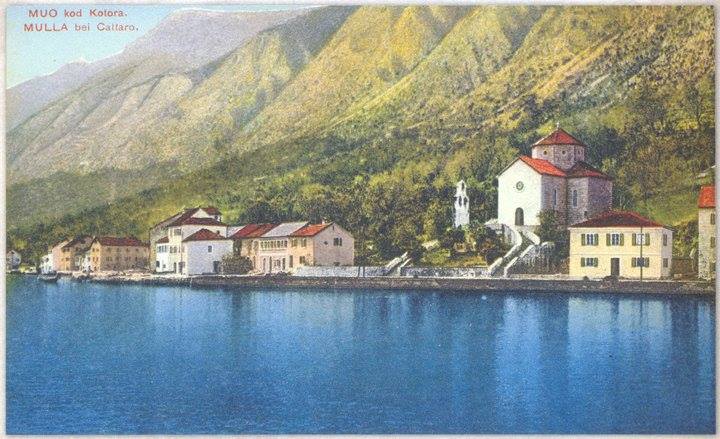
Unlike other places of Boka Bay, which were active in
maritime, Muo residents were more engaged in fishing. It is the first place in our coasts that has developed fisheries as the primary occupation of its inhabitants. They were fishing across the Boka Bay, looking for and catching fish and living from its sale," explains Ilko.
In Muo there used to be fish processing, Ilko reminds us and explains:
"At the end of the 19th century, Muo residents made a fish processing factory. Organized in several queues, the workers of that plant worked into groups: one was selecting fish, one packing, one closing the cans, and the fourth labeling the product names. This factory disappeared in the fire in 1918, and it was the end of fish processing in Muo. Muo also had a mussel farm. It was the first shellfish farm in Boka Bay, formed at the beginning of the 20th century. One year there was shellfish poisoning, which caused the production to cease," Ilko is sharing history facts mentioning the Boka Bay waited for re-establishment of marine aquaculture for a century.
So, in 19th and at the beginning of 20th century, Muo was more economically developed than it is today. The cultural life of the place was also more dynamic and more meaningful.
"My grandmum told me that there were ten fishing companies and ten taverns in Muo before the Second World War. These taverns were the objects where residents bought fish, procured basic items, but also could have a drink and spend some time socializing. They had a House of Culture that they made in 1913 by dividing two percent of the fish catch. That facility they later used as a school, they practiced and performed a famous choir “Zvonimir“, which was one of the best amateur choirs in the former Yugoslavia," Ilko recalls.
In addition to singing in the church choir and the male choir Zvonimir, the fishermen of Muo sang to make it easier for the hard life of the fishermen.
"Members of the fishing companies started the song when returning from the sea, continuing to do the jobs they had been waiting for after the fishing. When these jobs were over, they went to the houses to change into a dry wardrobe and went back to the waterfront where they continued the song on the gates and taverns, socialized, playing cards, "says Ilko Marovic. So it is no surprise that Muo had a choir that was successful in performances throughout Yugoslavia. "Father Corona, who served in St. Anthony's Church in Prcanj, heard that the inhabitants of Muo well sang and called the choir that first appeared in 1888."
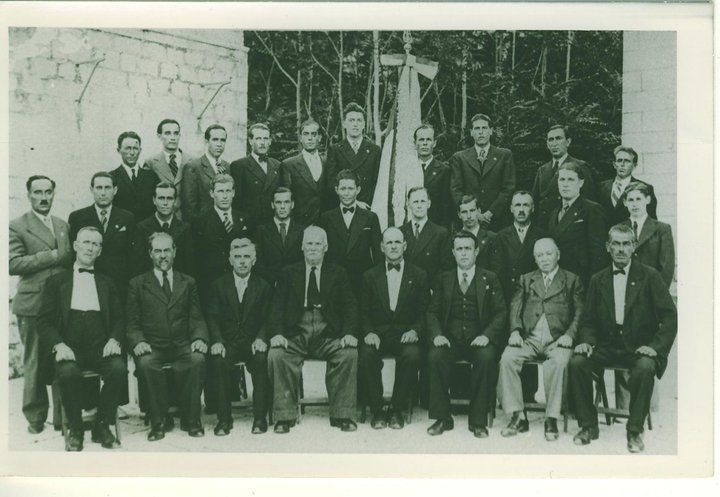
"We always think of fishers as some lower, poor population. The locals in Muo were fishermen, but they lived quite good from that work. We can see it even today by many beautiful stone houses by the sea. Residents of other coastal settlements in today's Kotor were engaged in maritime affairs and built gorgeous palaces in their settlements, but those palates, beside the church, were the only seafront buildings. Unlike other settlements, Muo did not build its landowners, but its peasants, fishers, who built a wreath of houses by the sea that complement each other by dividing the side walls. They shared the walls; they shared life. That harmony of simple life has forever disappeared, and with it the majority of the fishermen's tradition of the place," Ilko says with a lament.
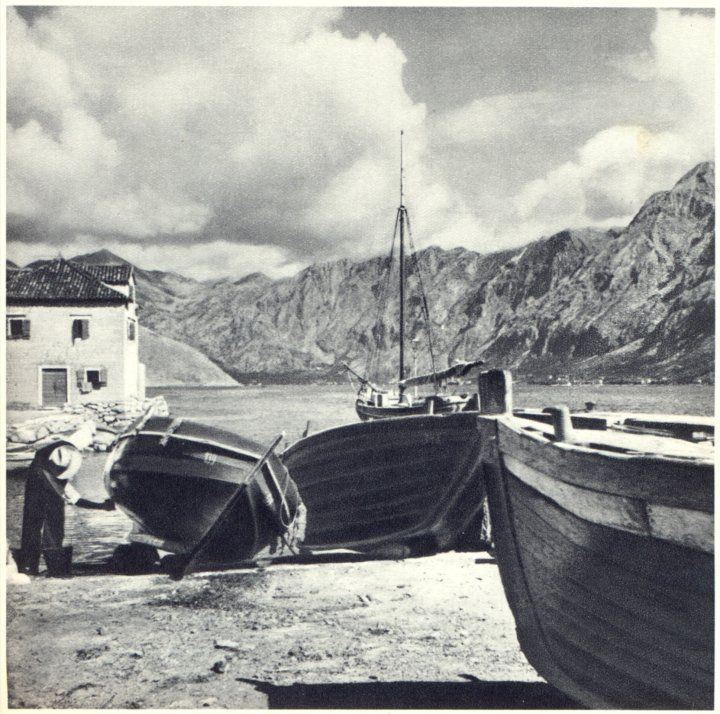
Today in Muo there is only one fishing company, which you can meet in the part of the settlement called Peluzica. They are fishing, socializing and waiting for one of the few traditional festivities that have survived. One of those is the Fishing Day, or as locals call it- "Rusalja." This custom originates from the inhabitants of Muo from the upper settlement, where they used to bless fields and cattle to pray for a good year. When they moved along the sea, they customized the old habits and consecrated them to the sea as the source of life. It is one of the most beautiful ceremonies in Boka Bay, held annually on Spiritual Mondays. We asked Ilko to make us closer this tradition of Muo.
"On Spiritual Monday at 6 am, Muo residents move from the parish church of Holy Kusma and Damian into a large procession with the participation of believers from the surrounding places. The procession goes all the way to the border with Prcanj, where the parish priest reads the Holy Gospel. The procession then goes back through the place, zigzagged with flags and greenery. The procession goes all the way to the border with the village of Skaljari, where the priest re-reads the Holy Gospel. Many of the families in the village stand out on the visible place of the sacred images to be blessed, and the fishermen put the nets and the fishing tools on the road to baptize them, for a happier and more lucrative catch. The procession then returns to the church of Blessed Grace, in front of which the pastor re-reads the Holy Gospel. After that, the priest goes down to the shore to bless the sea sinking the cross three times and praying for fishermen, seafarers, and travelers," explained Ilko the custom from which the inhabitants of Muo did not give up.
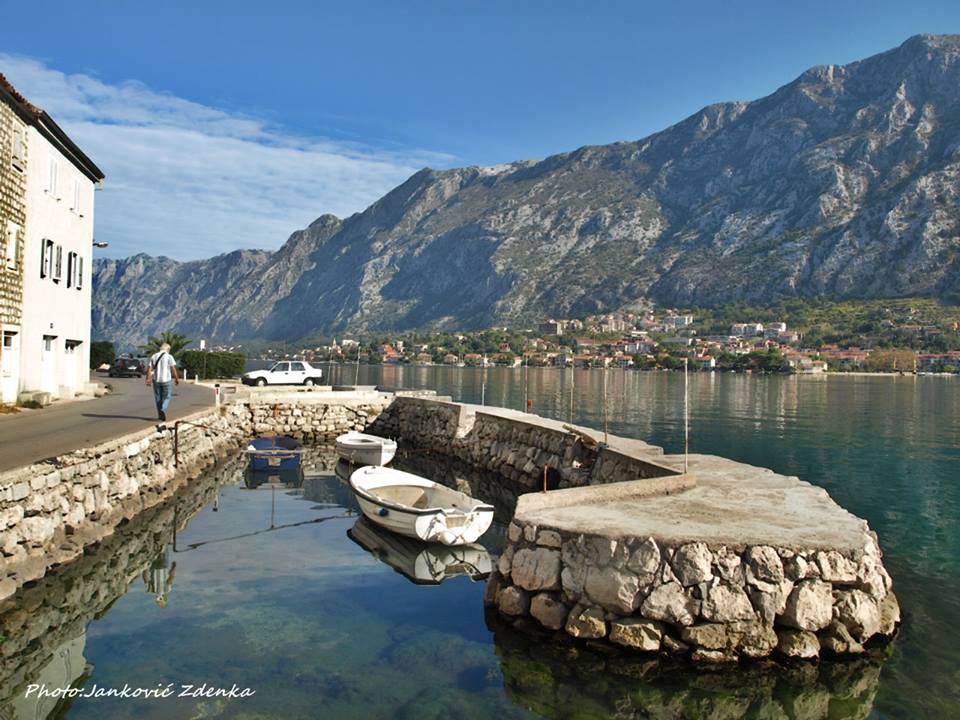
photo by Zdenka Jankovic
A small fishing village Muo tourists can experience the best during the Kotor's Summer Carnival Festivals. At the initiative of NGO Festivities, Muo host the Fish and Wine Evenings organized under the auspices of the Kotor Tourist Organization. This program, always held in the first week of August, is very appealing to residents of Boka Bay and their guests. Muo then smells again on the fish and wine, which the hosts provide in abundance — with song and dance, rejoicing at numerous guests, Muo then, at least in a short, lively life worthy of his age-old traditions.
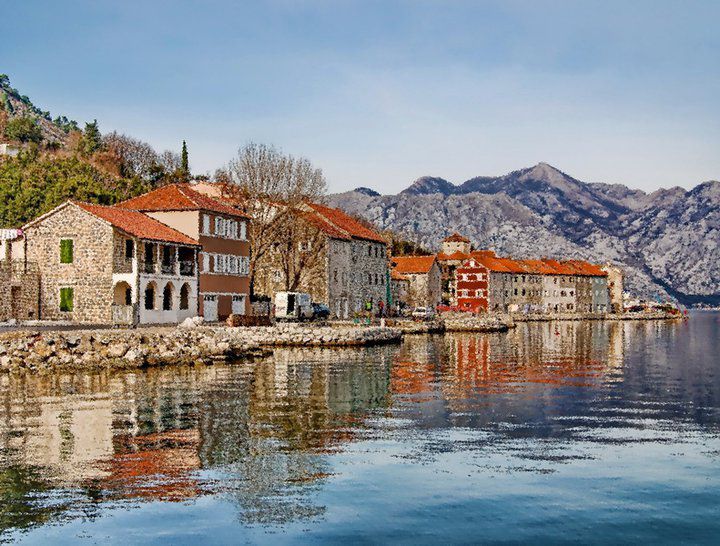
photo by Zoran Nikolic
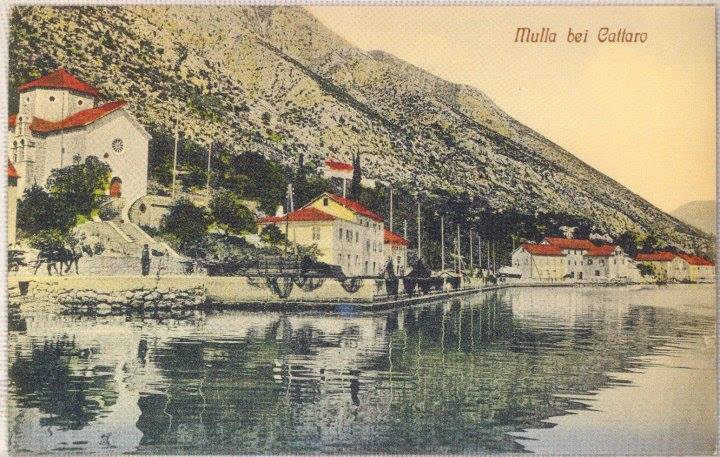

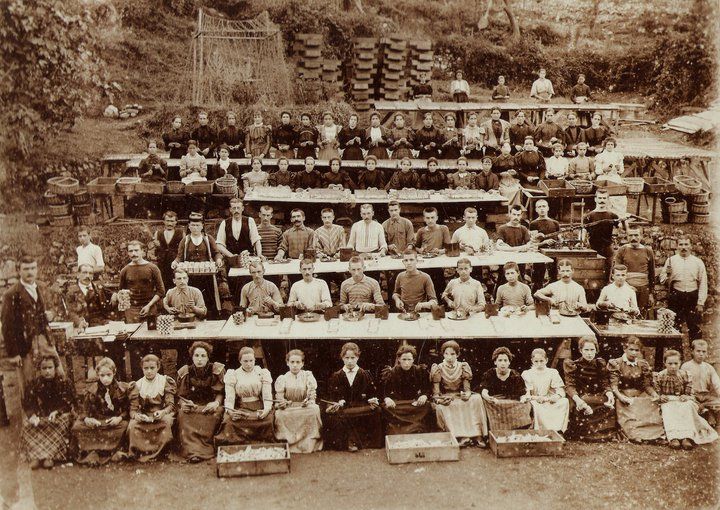


 photo by Zdenka Jankovic
photo by Zdenka Jankovic photo by Zoran Nikolic
photo by Zoran Nikolic







